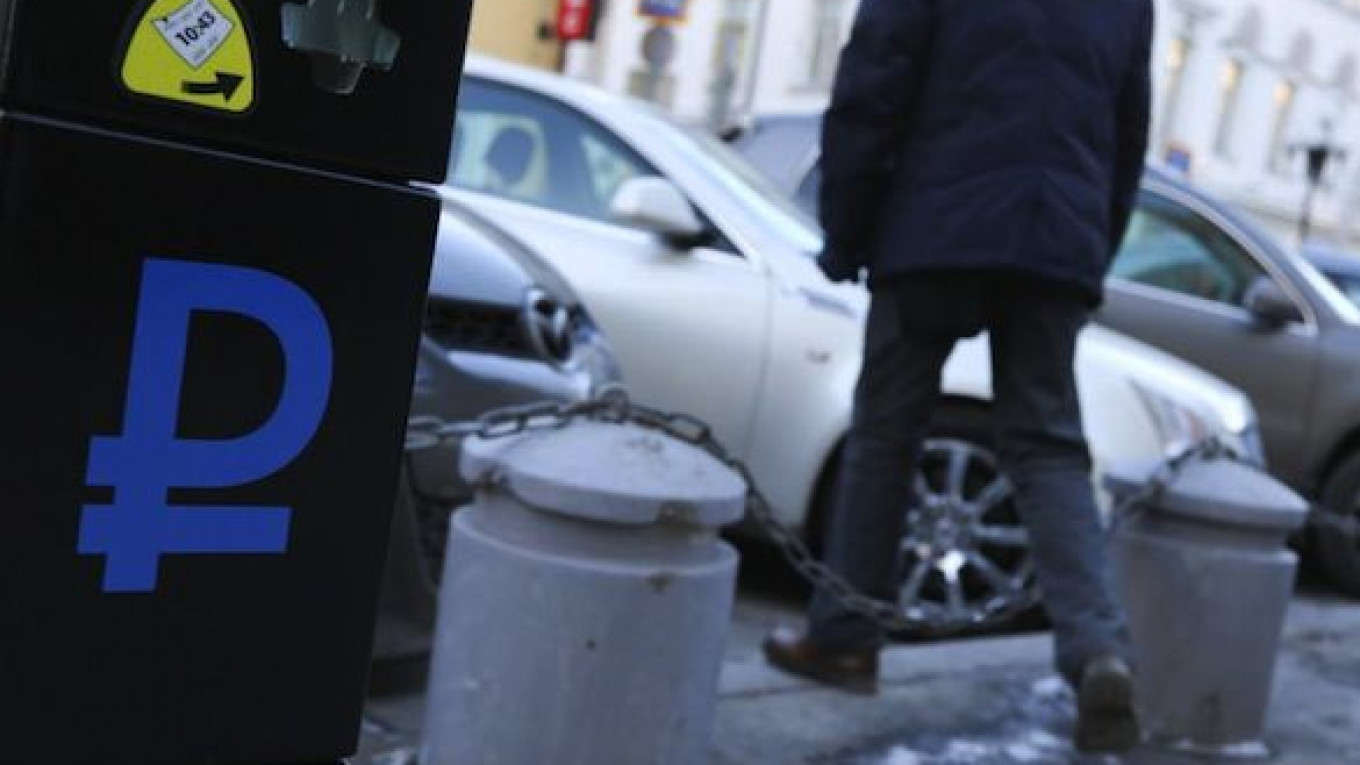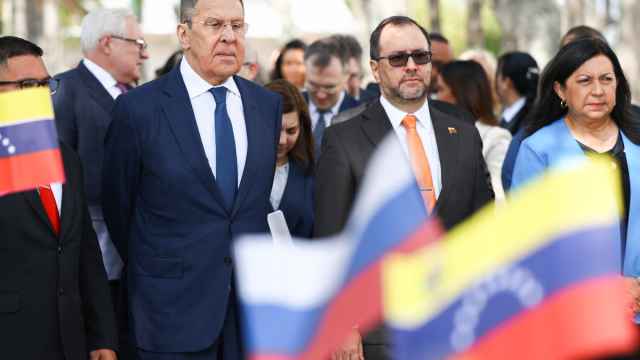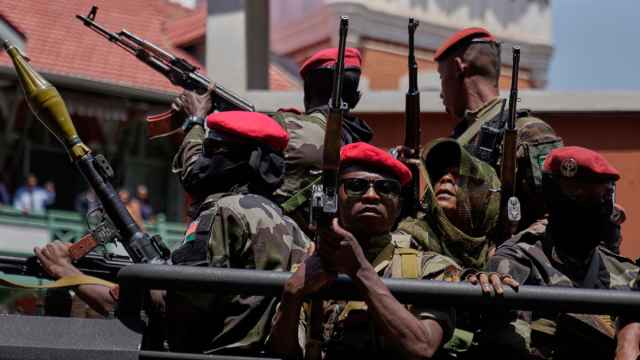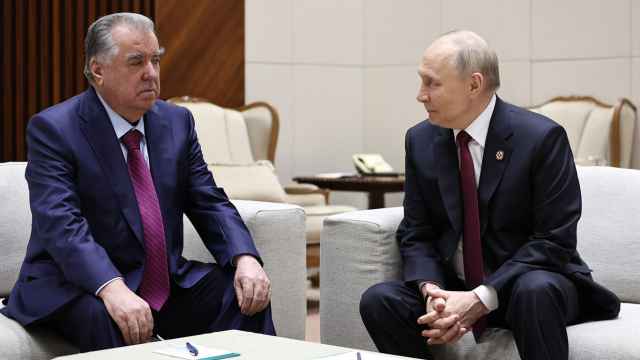The Central Bank kept its key policy rate unchanged as expected Friday, underscoring its dilemma of trying to grapple with both a severe economic slowdown and a plunging ruble.
It said it may raise rates later if necessary to curb inflation, but not to defend the weakening ruble.
The bank left its benchmark one-week minimum auction repo rate at 5.5 percent, keeping it there for the sixteenth meeting in a row. But it also issued a clear warning that it would raise rates if the weakening ruble causes inflation to overshoot its medium-term targets.
Governor Elvira Nabiullina has been under pressure to cut rates for months to boost the economy, which grew by a relatively small 1.3 percent last year. However, the bank is concerned that inflation, which was at 6.1 percent as of Feb. 10, remains well above its end-year target of 5 percent.
Speculation that the bank might instead be forced to raise interest rates has been mounting at a time when several other emerging markets have done so — in some cases aggressively — to bolster slumping currencies.
The bank said it expected inflation to fall close to its target during the year, while noting that a rise in food prices at the end of last year and the ruble's depreciation were major sources of uncertainty.
"If the negative impact of these factors spills over to the prices of a wide range of goods and services and to household expectations, the possibility of inflation deviating from the mid-term targets will increase," the bank said.
"In this case, the Bank of Russia will be ready to tighten its monetary policy."
Radical Hikes
The warning signaled concern about the ruble's 6 percent decline against the dollar this year, but in later comments at a news briefing, Nabiullina struck a more balanced tone, saying there was no reason for now to hike or cut rates.
Higher rates now would damage economic growth, she said, adding that the Central Bank had lowered its growth forecast for 2014 to 1.5-1.8 percent, from its previous 2 percent forecast, after being surprised by last year's poor performance.
Constraining possible rate cuts, she also said, was the lack of evidence that inflationary expectations are falling.
Nabiullina emphasized that any decision to raise rates would be taken in response to higher inflation, and not to support the ruble. But she estimated that the ruble weakening already seen would add around 0.5 percentage points to inflation.
"I repeat again. Our main goal is to lower inflation," she said, emphasizing the strategic shift away from targeting the exchange rate to focusing on inflation due to be completed by 2015.
Firmer Ruble
The ruble firmed on the Central Bank's announcement, trading up 0.4 percent on the day against the dollar at 35.00 and wiping off a 0.5 percent decline seen before the Central Bank's decision.
"The decision of the regulator shows that the Central Bank is worried about the weakening of the ruble, and it means that they could take additional measures to support it," said Olga Lapshina, an economist at Bank St Petersburg.
But some other analysts played down the hawkish tone, seeing the Central Bank's statement as broadly neutral.
"The Central Bank was trying to strike a delicate balance between sending a signal that it does expect its [inflation] target to be achievable under its current monetary policy stance, and the fact that it's ready to act and tighten policy," said Vladimir Kolychev, chief economist at VTB Capital.
It was unlikely that the weakening ruble would have a major impact on inflation, provoking rate hikes, as the poor state of the economy meant that other inflationary pressures were weak.
A Message from The Moscow Times:
Dear readers,
We are facing unprecedented challenges. Russia's Prosecutor General's Office has designated The Moscow Times as an "undesirable" organization, criminalizing our work and putting our staff at risk of prosecution. This follows our earlier unjust labeling as a "foreign agent."
These actions are direct attempts to silence independent journalism in Russia. The authorities claim our work "discredits the decisions of the Russian leadership." We see things differently: we strive to provide accurate, unbiased reporting on Russia.
We, the journalists of The Moscow Times, refuse to be silenced. But to continue our work, we need your help.
Your support, no matter how small, makes a world of difference. If you can, please support us monthly starting from just $2. It's quick to set up, and every contribution makes a significant impact.
By supporting The Moscow Times, you're defending open, independent journalism in the face of repression. Thank you for standing with us.
Remind me later.






